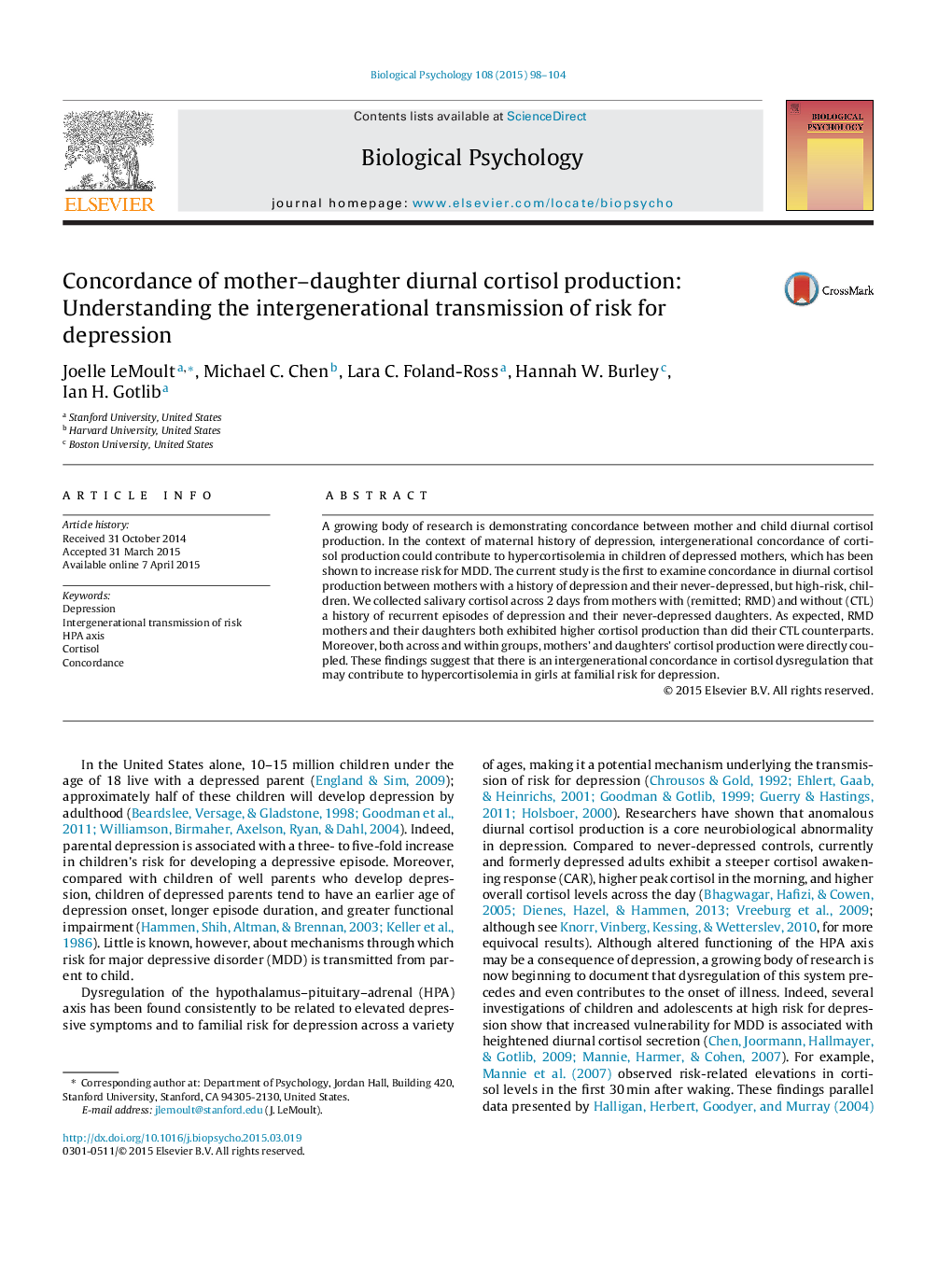| Article ID | Journal | Published Year | Pages | File Type |
|---|---|---|---|---|
| 7278598 | Biological Psychology | 2015 | 7 Pages |
Abstract
A growing body of research is demonstrating concordance between mother and child diurnal cortisol production. In the context of maternal history of depression, intergenerational concordance of cortisol production could contribute to hypercortisolemia in children of depressed mothers, which has been shown to increase risk for MDD. The current study is the first to examine concordance in diurnal cortisol production between mothers with a history of depression and their never-depressed, but high-risk, children. We collected salivary cortisol across 2 days from mothers with (remitted; RMD) and without (CTL) a history of recurrent episodes of depression and their never-depressed daughters. As expected, RMD mothers and their daughters both exhibited higher cortisol production than did their CTL counterparts. Moreover, both across and within groups, mothers' and daughters' cortisol production were directly coupled. These findings suggest that there is an intergenerational concordance in cortisol dysregulation that may contribute to hypercortisolemia in girls at familial risk for depression.
Related Topics
Life Sciences
Neuroscience
Behavioral Neuroscience
Authors
Joelle LeMoult, Michael C. Chen, Lara C. Foland-Ross, Hannah W. Burley, Ian H. Gotlib,
